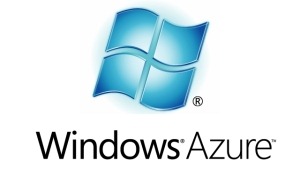 Are you a developer looking to launch your new web application? Or perhaps you’re an IT Pro or IT Architect trying to understand what all the fuss about “The Cloud” is. Or maybe you need for some compute time to run calculations. No matter who you are, or why you’re thinking about the cloud, Microsoft is making it easy for you try out our cloud offerings: Windows Azure (which runs your apps the in the cloud), SQL Azure (your database in the cloud) and AppFabric (which ties your on-premises and cloud systems together).
Are you a developer looking to launch your new web application? Or perhaps you’re an IT Pro or IT Architect trying to understand what all the fuss about “The Cloud” is. Or maybe you need for some compute time to run calculations. No matter who you are, or why you’re thinking about the cloud, Microsoft is making it easy for you try out our cloud offerings: Windows Azure (which runs your apps the in the cloud), SQL Azure (your database in the cloud) and AppFabric (which ties your on-premises and cloud systems together).
Check out the Azure Pricing Page and take a look at the introductory special, which lets you take Azure for a spin for a limited time – free of charge. Here’s what you get:
Included each month at no charge:
- Windows Azure
- 25 hours of a small compute instance
- 500 MB of storage
- 10,000 storage transactions
- SQL Azure
- 1 Web Edition database (available for first 3 months only)
- AppFabric
- 100,000 Access Control transactions
- 2 Service Bus connections
- Data Transfers (per region)
- 500 MB in
- 500 MB out
Any monthly usage in excess of the above amounts will be charged at the standard rates. This introductory special will end on October 31, 2010 and all usage will then be charged at the standard rates.
This special offer is available right now through October 31, 2010 and is limited to one per customer. (You’ll probably want to look at the “full details and disclosure” page.)
If you’re in Canada and have questions about Windows Azure, my team and I are here to help and can answer your questions. We’d also love to hear what sorts of projects you’re using Azure for. To reach us, drop us an email at cdnazure@microsoft.com.


 What You’ll Need to Know
What You’ll Need to Know


